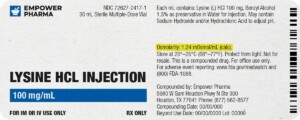Minoxidil
Precautions for minoxidil may include heart disease or high blood pressure. Minoxidil may cause adverse cardiac effects if used for extended periods of time or over a large area of skin. Additionally, skin conditions such as irritation or sunburn on the area of application may increase the chance of side effects .[9] After application, ensure product is dry prior to initiating contact with others, as excessive hair growth has been reported in babies after skin contact with treated areas.[1]
Finasteride
Finasteride is contraindicated for use in pregnant women, women who may become pregnant, and children. Finasteride should not be handled by pregnant women or women of childbearing potential due to risk of fetal harm. Patients receiving finasteride therapy should not donate blood during therapy and for 6 months following stopping dutasteride to avoid risk of finasteride exposure to a pregnant transfusion recipient.[2]
In patients with liver disease, finasteride concentrations may be higher due to reduced liver metabolism of the drug.[2]
Ketoconazole
Ketoconazole should not be used on burned or damaged skin.[10] Ketoconazole is contraindicated for use in patients with liver disease. As high doses of ketoconazole may inhibit adrenocortical function, ketoconazole should be avoided in patients with adrenal insufficiency.[4]
Disclaimer: Do not take this medication if you are allergic to any components of this product. Stop taking your medicine and seek immediate medical attention if you have any signs of a severe allergic reaction such as but not limited to rash or hives spreading across your body, any swelling of the face, tongue, or throat, or any signs of trouble breathing.
Give your health care provider a list of all the medicines, herbs, non-prescription drugs, or dietary supplements you use. Also, tell them if you smoke, drink alcohol, or use other drugs. Some items may interact with your medicine. This is not a complete list of key warnings, contraindications and precautions. Reach out to your healthcare provider with any questions.


 Finasteride Tablets
Finasteride Tablets Acne Ultra Gel
Acne Ultra Gel Acne Extreme Gel
Acne Extreme Gel Hair Restore D Scalp Solution
Hair Restore D Scalp Solution Minoxidil Capsules
Minoxidil Capsules Doxycycline Tablets
Doxycycline Tablets NAD+ Cream
NAD+ Cream Melasma TA Gel
Melasma TA Gel Biotin (Vitamin B7) Injection
Biotin (Vitamin B7) Injection GHK-Cu Scalp Solution
GHK-Cu Scalp Solution